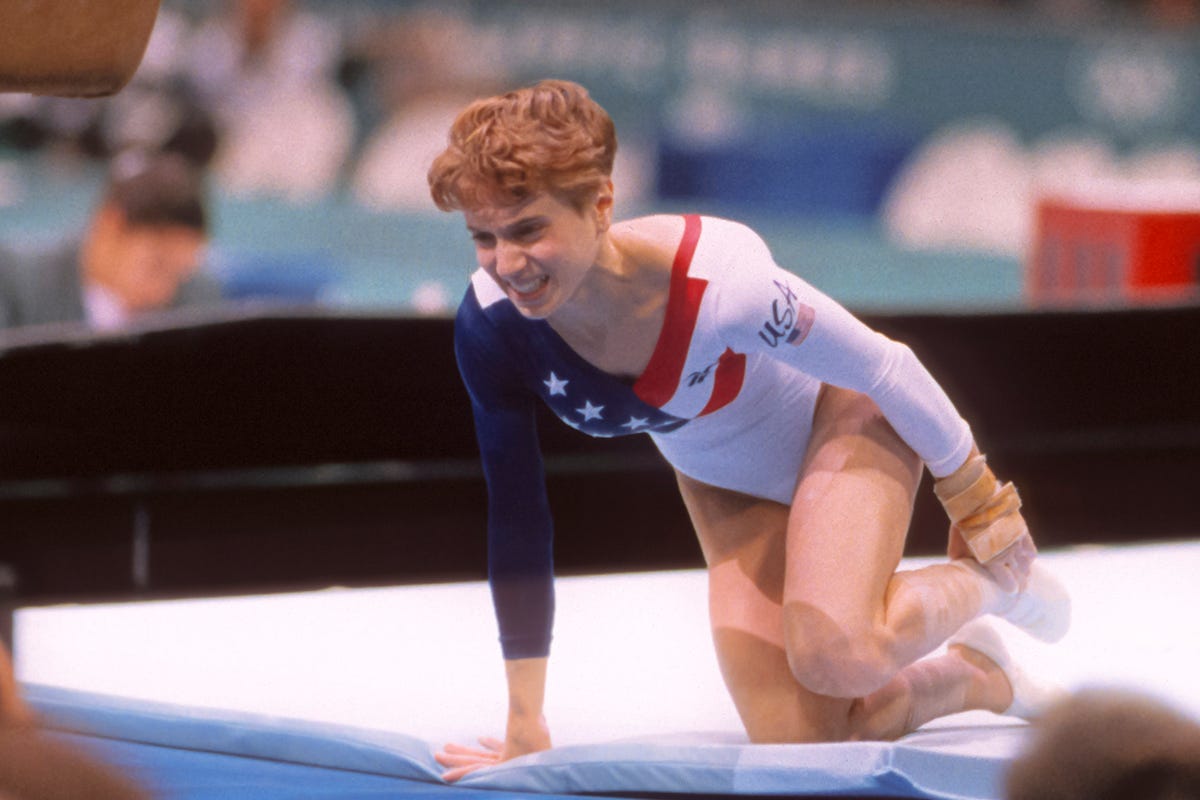Cheering the Woman, Condemning the System
Your thoughts on how to celebrate achievements within abusive systems
This week, I’m sharing your stories about being cheerleaders for individual women’s excellence, while rejecting the systems they rose up through. Next week, I’ll share selections from our conversation about pornography, abuse, and the distortion of sex.
As we watched the Olympics, I asked you about how you approach being a fan of a female athlete while not endorsing the abusive systems that may have shaped her rise. (In some ways, this is the cousin of our discussion this week on ethical pornography and nudity on film).
I asked where you find yourself inhabiting this tension, and what you do about it.
Catherine named her support of female troops:
The military, for sure. There is an NYT Magazine article this week about the military and sexual assault. (cw: rape, sexual assualt, PTSD).
Of course, I have respect for servicemembers and their families—my brother is serving in the Navy right now, and I am proud of him. It's hard and valorous work. But I think the U.S. military’s problems with deep systemic misogyny (and other forms of bigotry, extremism, and inequality) are concerning to me.
It’s an example that’s come back to me as servicemembers have put themselves at risk and lost their lives trying to maintain a brief, safe corridor out of Afghanistan.
Esther O’Reilly had a very moving essay on the images of fully kitted-out soldiers comforting refugee children. The poison the NYT Magazine article discusses and real heroism and tenderness can lie very close to each other. But they don’t cancel out—the way to value the best parts is to praise them and to also work tirelessly to purge the worst.
Magdalen offered a more sweeping answer:
"Where do you find yourself cheering for women, but worried about the system that’s selecting and shaping them?"
In all honesty, the answer to that question is "basically everywhere."
But on a much less depressing note, Simone Biles gives me hope that at least one system is changing. It was incredibly inspiring to see her competing as a confident adult who knows her limits after all the horrific abuse that was exposed in USA gymnastics. To see a gymnast calling the shots and taking charge after decades of the shots being called by abusive doctors and coaches felt truly redemptive. It was honestly like watching that moment of poetic redemption you sometimes get in movies, except this was real life and it was women my age who had orchestrated it. I aspire to be like Simone Biles.
Perhaps call this the Bartleby Wave of feminism. There’s a real gift from women who came before and proved that women could succeed in an unjust system—that we could beat vicious barriers and overcome abusive hurdles.
But that’s not a lasting victory. There’s another kind of witness offered, once excellence has been established, in saying “No” to participation in an unjust system. That “No” can be a unified boycott, powerful in its numbers, or the prominent witness of a woman like Simone Biles, who has worked to rise to a level where no one can ignore or write off her “No.”
I’ve just finished reading Dawn Foster’s Lean Out which is focused on the power of the private “nos” of women who pass by invisibly. Her book is a response to what she calls the 1% Feminism of Lean In, and other arguments that feminism’s goals are achieved in the boardroom.
Certainly women’s representation among coaches, USA Gymnastics leadership, etc. was not enough to protect gymnasts from abuse. There’s no panacea in women reaching those heights, but when we’re absent, it’s appropriate to treat that omission with suspicion. Representation is only the starting point.



Thank you for sharing these links, Leah. I know from your work you have discussed the damage certain sports can have on people's bodies, which I have been thinking about post-Olympics. There are damages and risks, some very costly and harmful (even deadly), whether football, gymnastics, or tennis. Before now, I hadn't thought about it much beyond football.